The Evolution of AI in Customer Service Experiences
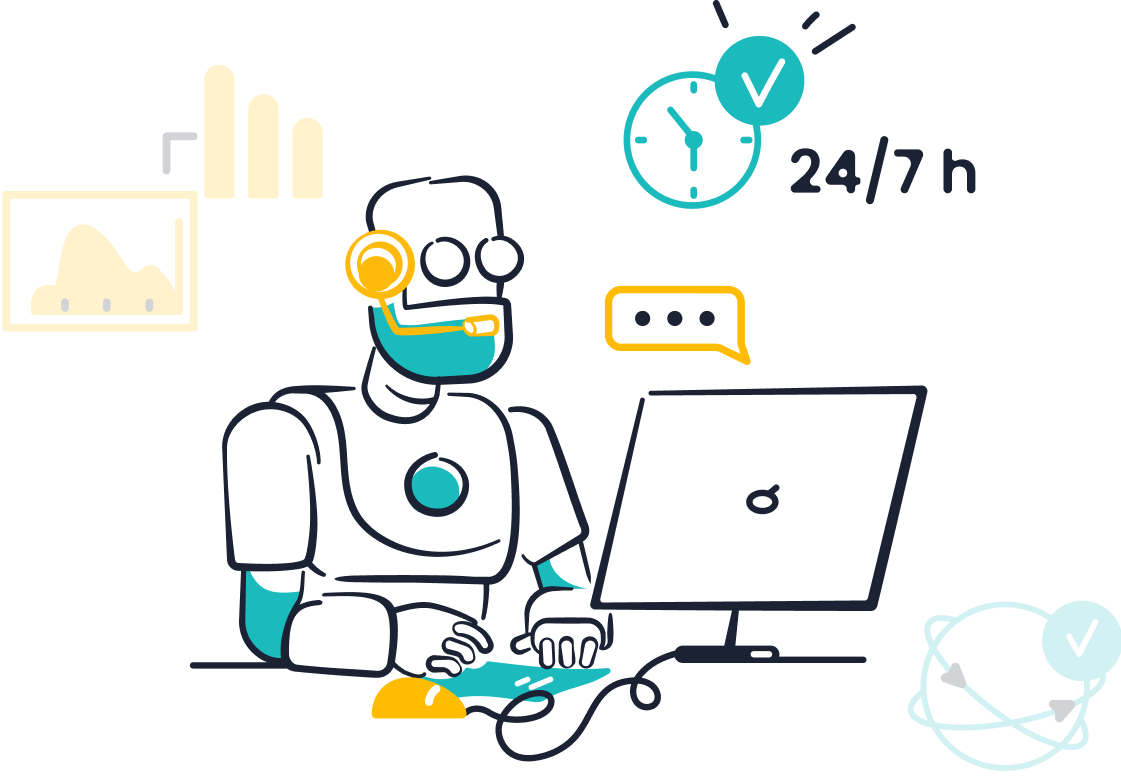
Artificial intelligence has revolutionized how businesses deliver service, transforming customer experience into something faster, smarter, and more efficient. For instance, studies show a 14% increase in customer service chats handled per hour when companies that use AI-generated customer support adopt advanced tools. Traditional service models, once reliant on human agents, now benefit from AI-powered solutions like Sobot's Chatbot. This tool not only automates responses but also operates 24/7, solving up to 80% of common inquiries without human intervention. With nearly 84% of businesses agreeing that AI enhances satisfaction, the question arises: how do you balance AI's immense potential with the challenges it introduces to customer interactions?
The Historical Evolution of AI in Customer Service

From Basic Automation to AI-Powered Customer Service
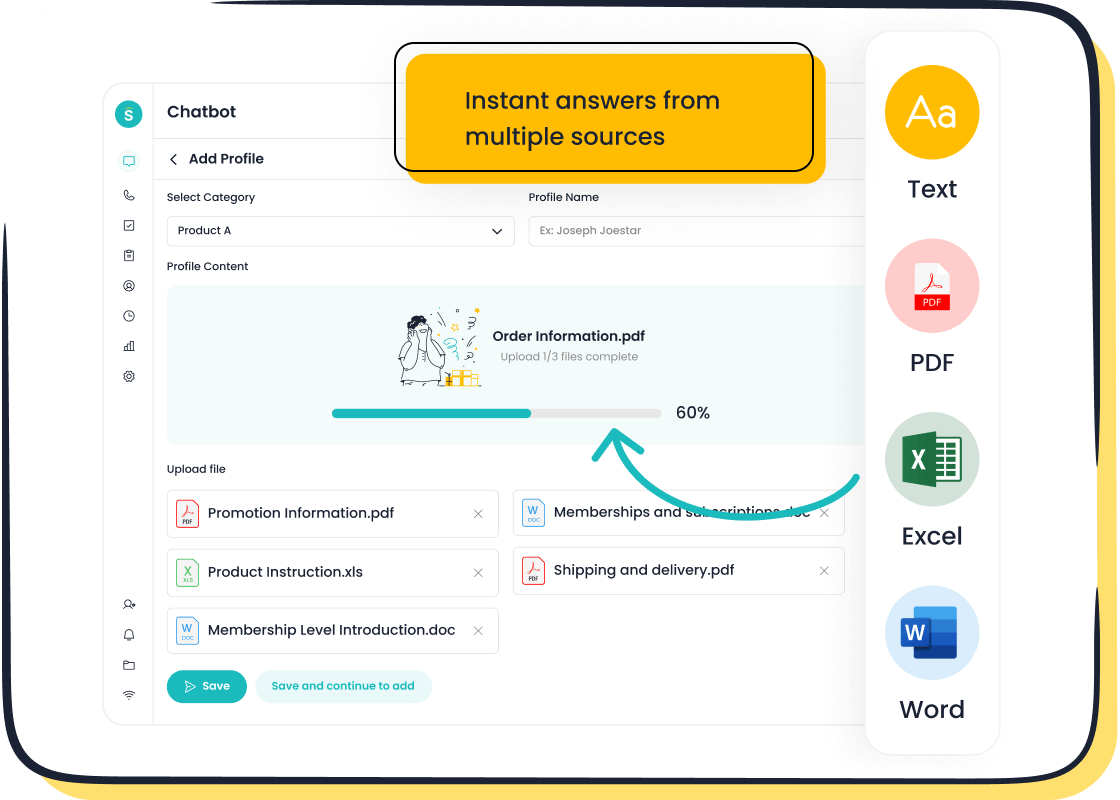
The journey of artificial intelligence in customer service began with basic automation. Early systems relied on rule-based scripts to handle repetitive tasks, such as routing calls or sending automated email responses. These tools improved efficiency but lacked the ability to adapt to complex customer needs. Over time, advancements in technology transformed these systems into AI-powered customer service solutions. Today, AI enables businesses to provide personalized and efficient support.
For example, 61% of customer service professionals predict that by 2024, most representatives will use AI and automation in their roles. Tools like Natural Language Processing (NLP) allow chatbots to understand and respond to human language, making interactions more conversational. Companies like Sephora have adopted AI-powered chatbots to enhance customer engagement, while Ozonetel uses smart dialers to optimize communication.
The Emergence of Chatbots and Virtual Assistants
Chatbots and virtual assistants have become essential in modern customer service. These tools offer 24/7 availability, ensuring customers receive support whenever they need it. The global chatbot market, valued at $5.1 billion in 2023, is expected to grow to $36.3 billion by 2032, reflecting their increasing adoption. Similarly, the virtual assistant market is projected to reach $11.9 billion by 2030.
Businesses across industries are integrating these technologies to improve customer interactions. For instance, 60% of B2B companies and 42% of B2C companies now use chatbot software. These tools not only enhance accessibility but also provide personalized responses through Natural Language Generation (NLG). This capability allows chatbots to address customer queries with context-specific answers, improving satisfaction.
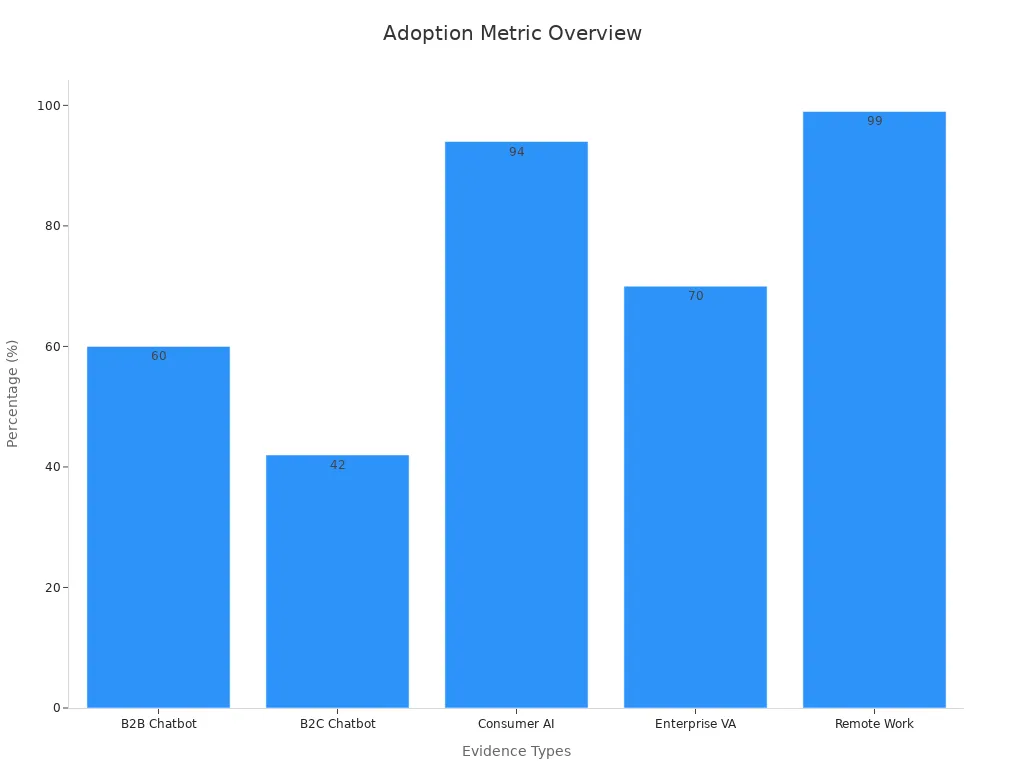
The Role of Machine Learning and NLP in Customer Support
Machine learning and NLP have revolutionized customer support by enabling AI to learn from data and improve over time. NLP techniques automate responses to customer queries, reducing response times and enhancing satisfaction. Businesses using AI-based customer service report significant improvements in efficiency and customer feedback analysis.

For example, the implementation of chatbots in sectors like finance and education has led to cost reductions and better service delivery. Sobot’s AI-powered chatbot exemplifies this innovation. It uses NLP to provide multilingual support and real-time assistance, helping businesses improve productivity by 70%. By leveraging machine learning, the chatbot continuously refines its responses, ensuring accurate and effective communication.
Key Impacts of AI on Customer Experiences
Personalization Through AI-Driven Insights
Artificial intelligence has redefined how businesses deliver personalized service. By analyzing vast amounts of customer data, AI identifies patterns and preferences that help tailor interactions. For example, AI-driven customer excellence enables businesses to recommend products based on browsing history or past purchases. This level of personalization enhances the customer experience, making each interaction feel unique and relevant.
A report titled AI’s Transformative Impact on Customer Service and Experience highlights how AI enables predictive omnichannel support and personalized customer experiences. These capabilities allow businesses to anticipate customer needs and provide solutions proactively. For instance, Sobot's AI-powered chatbot uses multilingual support and real-time intent analysis to deliver personalized responses, improving customer satisfaction and engagement.
Tip: Personalization not only improves customer interactions but also builds loyalty. Customers are more likely to return when they feel understood and valued.
Enhancing Operational Efficiency with AI
AI significantly boosts operational efficiency in customer service by automating repetitive tasks and streamlining workflows. Businesses using AI report a 35-55% reduction in average handle time and a 25-40% decrease in operational costs. These improvements free up human agents to focus on complex issues, enhancing overall productivity.
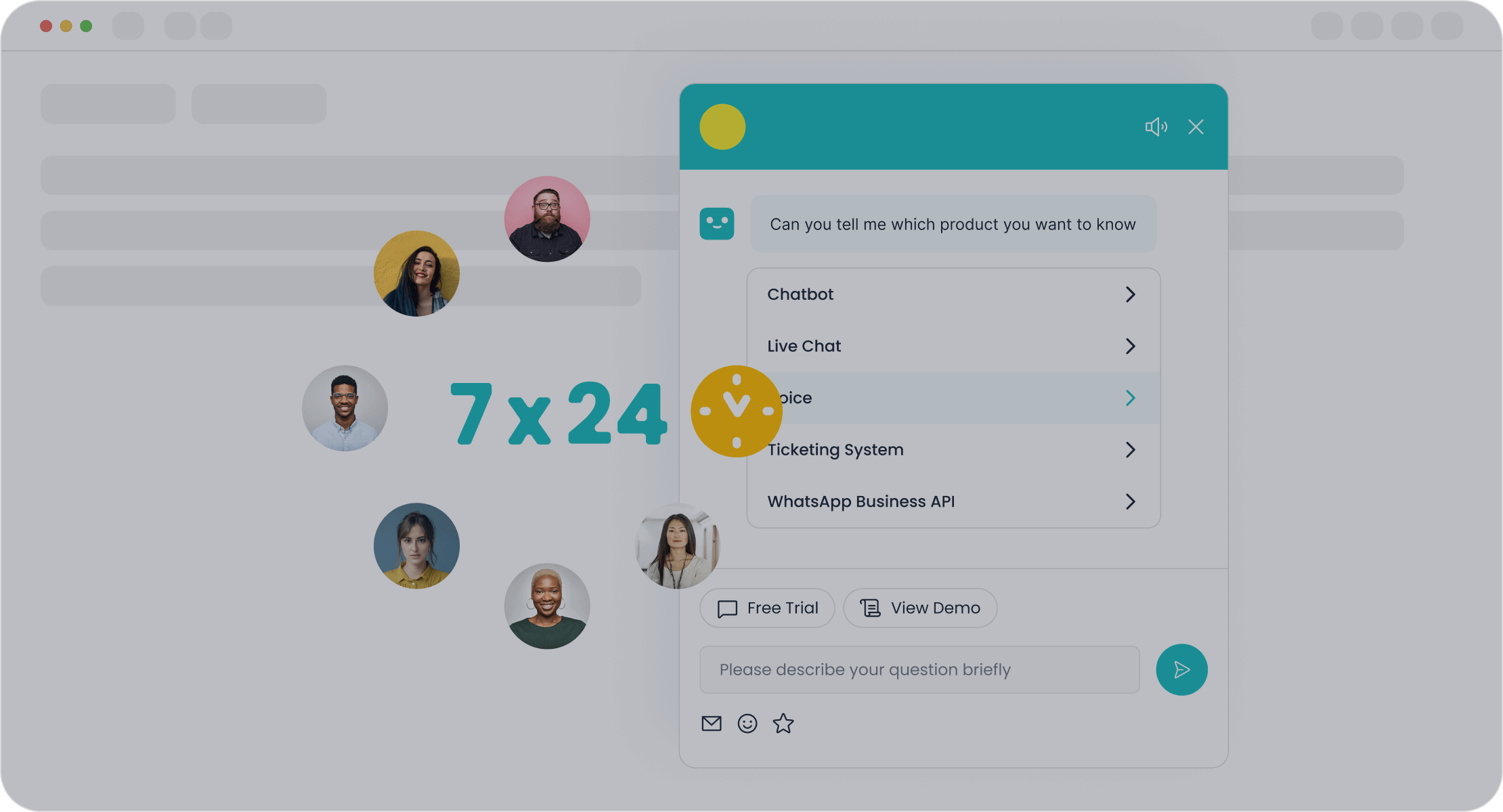
Sobot's AI solutions exemplify this efficiency. The Sobot AI Chatbot operates 24/7, autonomously resolving up to 80% of common inquiries. This reduces the need for additional agents and cuts service costs by up to 50%. Moreover, the chatbot's no-coding-required setup allows businesses to deploy it quickly, saving time and resources.
- Key Efficiency Metrics:
- 35-55% reduction in average handle time
- 25-40% decrease in operational costs
- 20-35% improvement in customer satisfaction scores
By integrating AI into customer service, you can achieve faster response times, lower costs, and higher satisfaction rates.
Proactive Problem-Solving and Predictive Analytics
AI empowers businesses to address issues before they escalate, thanks to predictive analytics. By analyzing historical data, AI identifies potential problems and suggests solutions. This proactive approach enhances customer interactions and prevents dissatisfaction.
For example, the case study Predictive Analytics in SAP S/4HANA demonstrates how predictive analytics improves efficiency by identifying risks early. Similarly, Sobot's AI solutions leverage predictive analytics to optimize customer support. The platform provides real-time insights, enabling businesses to resolve issues quickly and effectively.
| Case Study | Description |
|---|---|
| Data Science in Business | Data science drives decision-making and improves customer experiences. |
| Predictive Analytics in SAP S/4HANA | Predictive analytics enhances efficiency and risk management in operations. |
By adopting AI-driven predictive analytics, you can transform your customer service strategy. This approach not only resolves issues faster but also builds trust and loyalty among your customers.
24/7 Availability with AI-Powered Tools Like Sobot's Chatbot
In today’s fast-paced world, customers expect immediate responses, no matter the time of day. Businesses that fail to meet this expectation risk losing customer trust and loyalty. This is where AI-powered tools like Sobot's Chatbot shine. By offering 24/7 availability, these tools ensure that your customers always have access to support, enhancing their overall experience.

AI chatbots serve as the first point of contact between customers and businesses. They handle inquiries at any hour, providing instant solutions to common problems. This round-the-clock availability not only improves customer satisfaction but also reduces operational expenses. For example, Sobot's Chatbot autonomously resolves up to 80% of routine queries, allowing human agents to focus on more complex tasks. This approach saves businesses up to 50% in additional staffing costs.
Did You Know?
A study by Gartner revealed that by 2027, chatbots will become the primary customer service channel for 25% of organizations.
The benefits of 24/7 availability extend beyond convenience. It also ensures that businesses can cater to global audiences across different time zones. Whether a customer in New York needs assistance at midnight or someone in Singapore has a question during lunch, AI-powered tools like Sobot's Chatbot are always ready to help.
| Feature | Description |
|---|---|
| 24/7 Availability | AI chat apps provide continuous support, answering queries and assisting users at any time of day. |
Sobot's Chatbot takes this a step further with its multilingual capabilities and omnichannel support. It interacts seamlessly across platforms like WhatsApp, SMS, and social media, ensuring that customers can reach you through their preferred channels. This flexibility enhances the customer experience, making interactions smoother and more personalized.
Additionally, the chatbot's ability to operate without coding makes it accessible to businesses of all sizes. You can set it up quickly using its intuitive point-and-click interface. Once deployed, it works tirelessly to provide accurate and timely responses, boosting customer satisfaction and loyalty.
- Key Advantages of 24/7 AI Availability:
- Immediate responses to customer inquiries.
- Reduced wait times, leading to higher satisfaction.
- Cost savings through automation of repetitive tasks.
- Enhanced global reach, catering to customers in different time zones.
By integrating AI solutions like Sobot's Chatbot, you can transform your customer service strategy. This tool not only ensures continuous availability but also delivers a seamless and efficient experience for your customers. In a world where every second counts, having an AI-powered assistant available 24/7 can give your business a competitive edge.
Challenges and Ethical Considerations in AI-Powered Customer Service
Balancing Human-AI Collaboration in Customer Support
Artificial intelligence has transformed customer support, but achieving the right balance between AI and human agents remains a challenge. While AI systems excel at handling repetitive tasks and providing instant responses, they often lack the empathy and emotional intelligence that human representatives bring to customer interactions. Studies show that 86% of customers prefer speaking to human agents when given the choice, highlighting the importance of preserving the human touch in customer service.
Effective collaboration between AI and human agents requires oversight and integration. AI tools like Sobot's Chatbot can handle up to 80% of routine inquiries, freeing human agents to focus on complex issues that demand emotional understanding. For example, a Fortune 50 SaaS company saw a 19% improvement in Net Promoter Score (NPS) within five weeks of implementing AI assistance alongside human oversight. This demonstrates how AI can complement human efforts rather than replace them.
To ensure fairness and emotional intelligence, businesses must monitor AI interactions closely. Regular audits and bias detection tools can help identify and address any issues in AI systems. By combining the efficiency of AI with the empathy of human agents, you can create a customer experience that meets both practical needs and emotional expectations.
Addressing Privacy and Data Security Concerns
The integration of AI in customer service raises critical concerns about privacy and data security. AI systems rely on vast amounts of customer data to deliver personalized experiences, but this reliance also increases the risk of data breaches and misuse. For instance, unauthorized selling of private training data or lack of transparency in AI decision-making processes can erode customer trust.
To address these concerns, businesses must adopt robust data protection measures. Implementing clear privacy policies helps customers understand how their data is used. Establishing user consent mechanisms ensures individuals are aware of data practices. Regular reporting on data usage reinforces a commitment to transparency. Compliance with regulations like GDPR is essential, especially in industries where sensitive information is handled. Failure to comply can lead to legal and financial repercussions.
Sobot's AI solutions prioritize data security by offering features like GDPR compliance, data encryption, and continuous encrypted backups. These measures ensure that customer data remains protected while enabling businesses to leverage AI for improved customer engagement. Educating customers about their data rights further empowers them to control their personal information, fostering trust and satisfaction.
Managing Customer Preferences for AI vs. Human Support
Customer preferences for AI-based versus human support vary widely, and understanding these preferences is crucial for delivering effective service. While 51% of customers value instant service provided by AI tools, 87% feel that AI lacks empathy in customer interactions. This divide underscores the need for businesses to offer both AI and human support options.
AI-powered tools like Sobot's Chatbot cater to customers who prioritize speed and convenience. With 24/7 availability and multilingual capabilities, the chatbot ensures instant responses across various channels, meeting the expectations of customers who prefer quick solutions. On the other hand, human agents remain indispensable for handling complex issues that require emotional understanding.
To strike the right balance, businesses can adopt a hybrid approach. AI systems can serve as the first point of contact, addressing routine inquiries and escalating complex cases to human agents. This approach not only enhances efficiency but also ensures that customers receive the level of support they prefer. By analyzing customer feedback, businesses can continuously refine their strategies to align with evolving preferences.
| Statistic Description | Percentage/Projection | Source |
|---|---|---|
| Preference for instant service | 51% | Zendesk |
| Projected dominance of AI in interactions | 95% by 2025 | Tidio |
| Global adoption of chatbots for support | 67% | Invesp |
By offering flexible solutions that combine AI and human support, you can cater to diverse customer expectations and deliver a seamless customer journey.
Ensuring Fairness and Avoiding Bias in AI Algorithms
Fairness in artificial intelligence is critical for building trust and delivering equitable customer service. AI algorithms often rely on data to make decisions, but biases in this data can lead to unfair outcomes. You must ensure that your AI systems treat all customers equally, regardless of their background or preferences.
Bias in AI can occur when training data reflects societal inequalities or when algorithms prioritize certain groups over others. For example, an AI chatbot might unintentionally favor responses tailored to one demographic while neglecting others. To prevent this, ethical frameworks guide AI development. Organizations like the OECD and EU emphasize principles such as nondiscrimination and fairness. These guidelines help businesses create AI systems that respect diversity and avoid reinforcing biases.
- Key Measures to Ensure Fairness:
- Use diverse datasets to train AI models. This reduces the risk of bias by representing a wide range of customer experiences.
- Regularly audit AI systems for fairness. Monitoring algorithms helps identify and correct any unintended biases.
- Implement ethical AI principles. These include transparency, accountability, and fairness in decision-making.
Sobot’s AI solutions prioritize fairness by integrating advanced machine learning techniques. For instance, Sobot’s chatbot uses multilingual support to ensure inclusivity across different languages and cultures. Its AI-driven insights analyze customer interactions without bias, providing accurate and personalized responses. These features demonstrate how fairness can enhance customer satisfaction and loyalty.
Note: Fairness is not a simple metric. It requires ongoing evaluation and human oversight to ensure AI systems align with ethical standards.
Bias prevention also involves understanding the human-centered nature of fairness. You cannot rely solely on algorithms to define what is fair. Human input remains essential for setting ethical boundaries and addressing complex issues. By combining AI efficiency with human judgment, you can create a balanced approach to customer service.
| Fairness Principle | Description |
|---|---|
| Nondiscrimination | Ensures AI treats all customers equally. |
| Transparency | Makes AI decisions understandable to users. |
| Accountability | Holds businesses responsible for AI outcomes. |
Adopting these principles helps you build AI systems that reflect your values and meet customer expectations. For example, Sobot’s AI solutions comply with data protection regulations like GDPR, ensuring fairness while safeguarding customer privacy. This commitment to ethical AI strengthens trust and fosters long-term relationships.
Fairness in AI is not just about avoiding bias; it’s about creating systems that respect and value every customer. By implementing ethical frameworks and monitoring your AI tools, you can deliver service that is both efficient and equitable.
Future Trends in AI in Customer Service

AI's Role in Hybrid Work Models
AI is reshaping hybrid work models in customer service by bridging the gap between human agents and automated systems. You can use AI tools to automate routine inquiries, allowing your team to focus on complex tasks that require human empathy. This approach not only improves service quality but also reduces operational costs. For example, hybrid models supported by AI enable faster responses while maintaining the option for customers to interact with human agents when needed.
AI also fosters inclusivity among remote and in-office team members. Tools like Sobot's AI solutions streamline communication and automate repetitive tasks, ensuring that your team remains productive regardless of location. By integrating AI into hybrid work environments, you can enhance collaboration and engagement, creating a more efficient and cohesive workforce.
Scaling Customer Support with Advanced AI Solutions
Advanced AI solutions allow you to scale customer support operations effectively. These tools improve first contact resolution rates, customer satisfaction scores, and agent productivity. For instance, AI-powered platforms like Sobot's Chatbot can resolve up to 80% of routine inquiries autonomously, freeing up your agents to handle more complex issues.
| Performance Metric | Average Improvement | Implementation Timeframe |
|---|---|---|
| First Contact Resolution Rate | 20-30% | 3-6 months |
| Customer Satisfaction Score | 10-15% | 6-12 months |
| Agent Productivity | 15-20% | 3-6 months |
By adopting AI, you can reduce costs and improve efficiency across industries. Whether you're in retail, finance, or e-commerce, AI solutions provide the scalability needed to meet growing customer demands.
The Integration of AI with Emerging Technologies
The integration of AI with emerging technologies is transforming customer service. AI-powered tools now work alongside technologies like augmented reality (AR) and the Internet of Things (IoT) to deliver hyper-personalized experiences. For example, AI can analyze data from IoT devices to predict customer needs and offer tailored solutions.
| Insight | Percentage (%) |
|---|---|
| Preference for personalized experiences | 75 |
| Concern over data usage | 68 |
Sobot's AI solutions exemplify this trend by combining predictive analytics with omnichannel support. These tools anticipate customer needs based on past interactions, ensuring that every experience feels personalized. By leveraging AI alongside emerging technologies, you can stay ahead of customer expectations and deliver innovative service solutions.
Hyper-Personalized Customer Experiences with AI
Hyper-personalization, powered by artificial intelligence, has transformed how businesses interact with customers. By analyzing customer data, AI enables businesses to deliver tailored experiences that resonate with individual preferences. This approach not only enhances satisfaction but also builds stronger relationships between brands and their customers.
AI-driven personalization offers several benefits. For instance, organizations that prioritize customer experience achieve three times the revenue growth of their competitors. Tailored recommendations also increase purchase likelihood, leading to higher conversion rates. Additionally, personalization programs can reduce customer acquisition costs by up to 50%, making them a cost-effective strategy for businesses.
| Benefit | Evidence |
|---|---|
| Increased Revenue | Organizations prioritizing customer experience see three times the revenue growth of peers. |
| Customer Satisfaction | Tailored experiences lead to positive relationships with brands. |
| Engagement | Content personalization keeps users engaged longer. |
| Higher Conversion Rates | Relevant recommendations increase purchase likelihood. |
| Cost Savings | Personalization programs can reduce customer acquisition costs by up to 50%. |
| Competitive Advantage | Personalized experiences provide a significant edge over competitors. |
| Data-Driven Decision Making | AI personalization offers insights into customer behavior for informed decision-making. |
Sobot’s AI solutions exemplify the power of hyper-personalization. The Sobot AI Chatbot uses real-time intent analysis and multilingual support to provide responses tailored to each customer’s needs. This capability ensures that every interaction feels relevant and meaningful. For example, the chatbot can recommend products based on browsing history or past purchases, boosting engagement and driving conversions.
Hyper-personalization also helps businesses make data-driven decisions. AI tools analyze customer behavior to uncover trends and preferences, enabling you to refine your strategies. By leveraging these insights, you can anticipate customer needs and deliver proactive solutions. This approach not only improves satisfaction but also gives you a competitive edge in the market.
Incorporating AI into your customer service strategy allows you to create experiences that feel personal and unique. Whether you’re recommending products, solving problems, or engaging with customers across channels, AI ensures that every interaction adds value. By adopting hyper-personalization, you can build loyalty, increase revenue, and stay ahead of the competition.
Companies That Use AI-Generated Customer Support
Examples of AI Adoption in Customer Service
Many companies have embraced AI to transform their customer service strategies. AI systems improve efficiency, reduce costs, and enhance customer satisfaction. For example, Bella Santé uses Lyro AI Agent to automate 75% of customer conversations, generating $66,000 in sales and 450+ new leads in six months. Marriott International’s ChatBotlr reduces wait times and improves service efficiency, leading to higher customer engagement. AirHelp’s chatbot monitors social media in 16 languages and handles complex queries in real-time, achieving a 65% improvement in response time.
| Company | AI System | Key Results |
|---|---|---|
| Bella Santé | Lyro AI Agent | - $66,000 in sales - 75% of customer conversations automated - 450+ new leads in 6 months - Personalized customer experience |
| Marriott International | ChatBotlr | - Reduced wait times - Improved service efficiency - Higher customer satisfaction and engagement |
| AirHelp | AirHelp Chatbot | - 65% improvement in response time - Monitors social media in 16 languages - Handles complex queries in real-time |
These examples highlight how AI solutions empower businesses to deliver faster, smarter, and more personalized customer support.
How Sobot's AI Solutions Empower Businesses
Sobot’s AI solutions provide businesses with tools to improve customer interactions and operational efficiency. The Sobot AI Chatbot autonomously resolves up to 80% of routine inquiries, reducing inbound inquiries by 20%. It achieves a 96% customer satisfaction score and an 85% problem resolution rate. The chatbot’s multilingual capabilities and omnichannel support ensure seamless communication across platforms like WhatsApp and SMS.
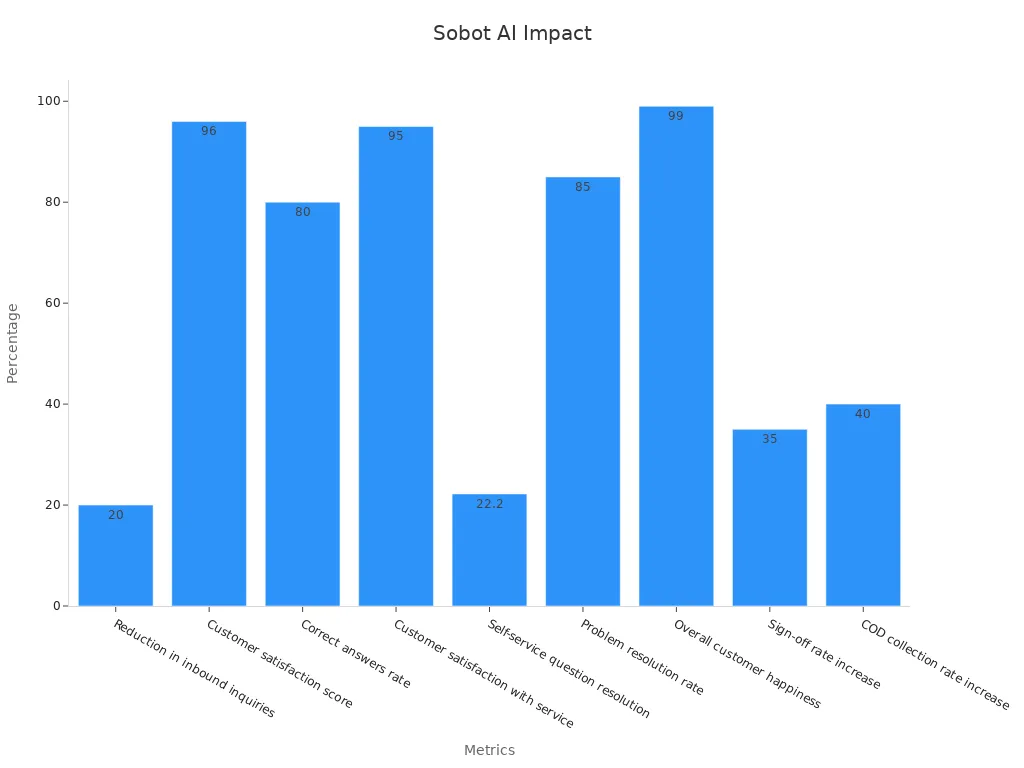
Sobot’s solutions also enhance self-service options, resolving 22.2% of questions without human intervention. This approach boosts customer happiness to 99% and increases sign-off rates by 35%. By integrating Sobot’s AI tools, you can streamline workflows, reduce costs, and deliver exceptional customer experiences.
Case Study: OPPO's Success with Sobot's Chatbot
OPPO, a global leader in smart devices, partnered with Sobot to address challenges during peak shopping periods. The company implemented Sobot’s chatbot and ticketing system to handle repetitive queries, freeing human agents for complex issues. This integration improved service efficiency and reduced knowledge base maintenance efforts by 90%.
The results speak for themselves. OPPO achieved an 83% chatbot resolution rate and a 94% positive feedback rate. The streamlined operations contributed to a 57% increase in repurchase rates. By integrating global customer channels and business systems, OPPO enhanced data accessibility and customer satisfaction.
Key Takeaway: Sobot’s AI solutions helped OPPO optimize its customer support strategy, demonstrating the transformative power of AI in delivering efficient and personalized service.
The Competitive Edge of AI in Customer Support
Artificial intelligence gives businesses a significant advantage in customer support by transforming how they interact with customers. Unlike traditional methods, AI-powered tools analyze vast amounts of data quickly and accurately. This ability allows you to uncover patterns, predict customer behavior, and personalize interactions in real-time. For example, AI systems can process unstructured data like social media posts and customer reviews, offering insights that manual methods often miss.
AI also enhances competitive intelligence. It processes data from multiple sources, recognizes trends, and forecasts market changes. These capabilities enable you to react faster to customer needs and market shifts. Companies that use AI-generated customer support, such as OPPO, have seen remarkable results. By implementing Sobot’s AI chatbot, OPPO achieved an 83% resolution rate and a 94% positive feedback score. This demonstrates how AI can streamline operations and improve customer satisfaction.
- Key Benefits of AI in Customer Support:
- Real-time data analysis for faster decision-making.
- Personalized customer interactions based on behavior predictions.
- Improved efficiency by automating repetitive tasks.
Sobot’s AI solutions exemplify these advantages. The Sobot AI Chatbot operates 24/7, resolving up to 80% of routine inquiries autonomously. Its multilingual capabilities and omnichannel support ensure seamless communication across platforms like WhatsApp and SMS. These features not only reduce costs but also enhance customer experiences, giving your business a competitive edge.
Did You Know?
Companies that use AI-generated customer support report higher customer satisfaction and retention rates. AI tools like Sobot’s chatbot help businesses stay ahead by delivering faster, smarter, and more personalized service.
By adopting AI, you can transform your customer support strategy. This technology not only improves efficiency but also strengthens your ability to meet customer expectations, ensuring long-term success.
Artificial intelligence has transformed customer service from basic automation to advanced tools like Sobot's Chatbot. In 2017, only 20% of companies used AI, but today, 97% of business owners believe tools like ChatGPT will benefit their operations. AI enhances customer experience by offering personalization, efficiency, and proactive support. For instance, Sephora uses AI-powered chatbots to deliver tailored recommendations, reducing wait times and improving shopping experiences.
Despite these benefits, challenges remain. Maintaining a human touch and addressing ethical concerns like data privacy require careful consideration. Nearly 90% of businesses agree that transparency in AI usage is essential for customer trust. As generative AI adoption grows, how will businesses balance automation with empathy to redefine customer interactions?
FAQ
1. How does AI improve customer service efficiency?
AI automates repetitive tasks, reducing response times and operational costs. For example, Sobot's AI Chatbot resolves up to 80% of routine inquiries autonomously, saving businesses up to 50% on staffing costs. This allows your team to focus on complex issues, improving overall productivity.
Tip: Use AI tools like Sobot's Chatbot to streamline workflows and enhance efficiency.
2. Can AI-powered chatbots handle multilingual support?
Yes, AI-powered chatbots like Sobot's Chatbot offer multilingual capabilities. They interact with customers in their preferred language, ensuring seamless communication. This feature is especially useful for businesses serving global audiences, as it enhances customer satisfaction and accessibility.
3. What industries benefit most from AI in customer service?
Industries like retail, e-commerce, finance, and gaming benefit significantly from AI solutions. For instance, Sobot's AI tools help retail businesses reduce cart abandonment and improve customer satisfaction by providing 24/7 support and personalized recommendations.
| Industry | AI Benefits |
|---|---|
| Retail | Reduced cart abandonment |
| Finance | Faster query resolution |
| Gaming | Enhanced player support experience |
4. Is coding required to set up Sobot's Chatbot?
No, Sobot's Chatbot features a user-friendly, point-and-click interface. You can design and deploy workflows without any coding experience. This makes it accessible for businesses of all sizes, enabling quick and easy implementation.
5. How does AI ensure data security in customer service?
AI systems like Sobot's prioritize data security with features like GDPR compliance, encryption, and continuous backups. These measures protect customer information while allowing businesses to leverage AI for personalized and efficient service.
Note: Always choose AI solutions that comply with data protection regulations to build trust with your customers.
See Also
Enhancing Efficiency With AI-Driven Customer Service Solutions
Transforming Support Through AI Customer Service Agents
An In-Depth Look At AI Call Center Solutions
